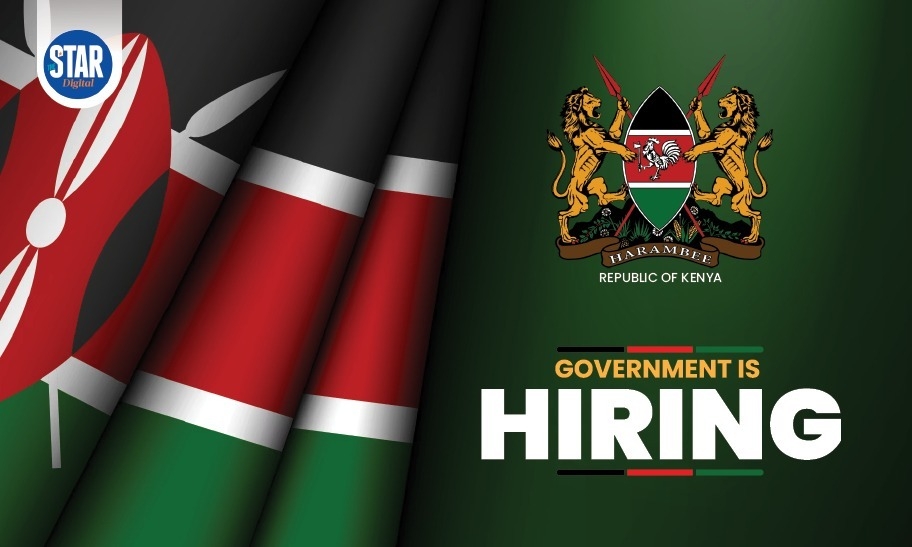A poem on life skills on how to avoid kwashiorkor, a severe lack of protein, got me thinking about the place of poetry and public service advertisements in teaching children about healthy eating from an early age.
It goes like this: “Mama, nipe mayai… nimechoka na ugali… kila siku ugali na kabech nyeupe … najua nitapatwa na kwashiorkor.”
Last week, I took part in a cultural connection event, and the theme was poetry and potluck. The whole idea behind the event was for people from different countries, meaning cultural contexts, to connect, with the theme being different foods and poetry from the different contexts.
The poems were to be in our various languages and one was to translate the literal and deep meaning to the audience. Here I was, looking forward to the event but without a poem at hand in Swahili language that I could quickly think of.
Then I quickly thought of my sons and after a quick telephone conversation, I had a poem that I could confidently present. And that’s when they proposed this old poem that they learnt in pre-primary, Mama nipe mayai.
Loosely translated, the poem is by a child asking the mother to prepare nutritious food like eggs, occasionally, unlike the frequent meals of ugali and plain white cabbage that have low nutritional values and lack protein. The child seems to have been taught about illnesses that are brought about by malnutrition like kwashiorkor and the place of proteins like eggs in trying to fight illnesses that come with lack of proper nutrition, especially for young children.
Messages such as these, with a focus on children under five, can go a very long way in fighting common health issues that impede the development of our children, thus, in the long run, the nation. Major health risks that under-five child in our part of the world commonly have are severe malnutrition, stunting, diarrhoea, malaria and pneumonia, all being major contributors to high death rates in this group.
Just to demonstrate the gravity of issues, one of the major issues that we can pick is stunting. According to the Kenya Demographic and Health survey report in the year 2022, 1.8 million children in Kenya were said to be stunted. In past reports, the Ministry of Health in Kenya, in 2021, mentioned that 26 per cent of the children in Kenya are stunted, even from the least expected counties.
Reported alarming cases on stunting in Kenya include: Nairobi county 104,074, Kakamega county 88,297, Nakuru 83,153, Mandera 98,638, Kilifi 82,526, Bungoma 76,201, Kitui 69,528, Kisii 54,749 and Narok 53,897. According to the World Health Organization, the most direct causes of stunting are inadequate nutrition (not eating enough or eating foods that lack growth-promoting nutrients) and recurrent infections or chronic diseases that cause poor nutrient intake, absorption or utilisation.
Many interventions with both local and international partners including the Ministry of Health in Kenya and the United Nations Childrens Fund , county governments, Non-Governmental Organisations and Community Health Workers are in place to try and fight stunting, among other malnutrition issues, but this is mainly through dealing with pregnant mothers or mothers and fathers of the children under five years.
Unfortunately, long-term social and economic effects of stunting to this population nearing the brunt would include: decreased physical growth of these children, lower educational attainment, cognition issues and in the long run, low workforce productivity and ultimately low wages.
So, looking at how bad the future picture is if we let issues such as stunting and others go on, what if the plan of fighting malnutrition became more inclusive of the children? What if the agenda was pushed through these same children who are at risk?
The fact that my 10-year-old son recalls the poem on fighting kwashiorkor, six years down the line, is something players in the health sector can take into consideration. Recall is one thing, but also the ability to make it repetitive for a group in the language they understand most is of utmost importance. Frequent, persistent requests for something from an under-five-year-old child can bring changes at home in many of the agendas they push for.
Currently, pre-primary education in Kenya is a two-year programme for children from the ages of three to five. Children are expected to start school at this level and they later progress into primary school upon completion. The Government of Kenya, through the Ministry of Education, has made pre-primary schooling mandatory.
Let the Government come up with public service advertisements on these under-five health issues with a focus on the children in pre-primary, as they also engage the likes of Wallah bin Wallah, a renowned author, to come up with creative poetry, in Swahili. This can push our children to understand health issues in the most simplified way possible, with a push towards human capital development.
The author is a communications researcher and scholar, currently pursuing Peace and Development Work Studies in Sweden. She can be reached at [email protected]














